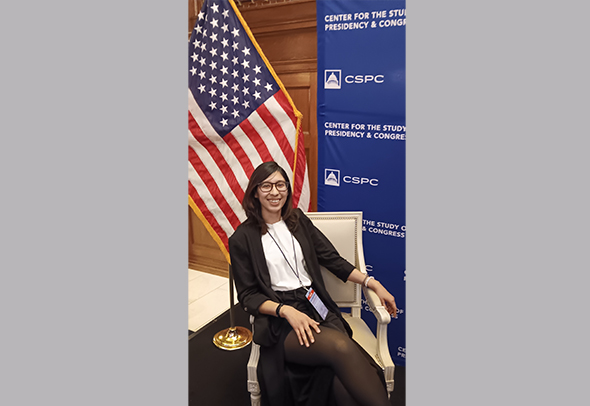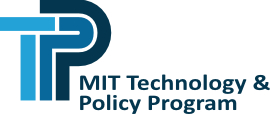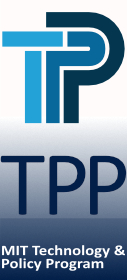
Maria Garcia-Garcia ’24 reflects on her CSPC Presidential Fellowship
Maria Garcia-Garcia ’24 arrived at MIT as a first-generation low-income student from San Antonio, Texas. She came to MIT to study engineering and graduated from the Brain and Cognitive Sciences department. She participated in the Center for the Study of the Presidency and Congress (CSPC) Presidential Fellows Program during the 2023-2024 academic year.
The Presidential Fellows Program began in 1970 with the mission to inspire and equip college students to become civic-minded leaders that could guide our nation’s future. The program consists of several virtual workshops during two semesters on topics like foreign policy, elections and supreme court cases amongst others. At the end of the program, participants submit a 14-page paper on policy analysis and attend a 5-day conference in Washington D.C. where they learn about current policy from congressmen and other involved experts.
Tell us a bit about your paper:
I examined the population of young adults aged 18-24 years old between 2000-2020 and identified the most common issues related to their mental health and mental health care. Analysis of five scientific studies helped me identify that the lack of educational resources and limited quality of care as the most prevalent setbacks in improving the overall mental health of young adults. However, current mental health policy only focuses on improving access and affordability of care. This is a gap that needs to be addressed and suggested solutions are implementing policies to establish educational programs for mental health similar to those already existing for sexual education. Mental health is a large topic and, as such, isn’t entirely covered in the scope of my analysis, so further research is required to further identify gaps in current mental health policy.
What was it like (before, during, after)?
Participating in this program was enlightening. The virtual workshops were very manageable alongside my heavy courseload, extracurriculars, and law school applications. The information was also delivered in an approachable way despite the majority of those involved being experts in political science. The conference itself was incredibly fun, I got to meet students from all around the world and learn more about their own personal perspectives which is something I feel is incredibly rare. I made lots of new friends and made lots of connections with current and future policy makers that I hope to keep in touch within the coming years.
What motivated you to apply?
When I saw the announcement for this program, I immediately applied because I thought it was a great first step to be the person I want to be after graduation. I want to influence positive change for the people I grew up with and the people I’ve gotten to meet, and I felt that working with the current system is the best way to do that.
What was it like to be there?
We had the opportunity to visit a lot of historical places including the White House, Capitol Hill, the Pentagon and the Met club. We also met people who had invested their careers in following and changing politics, which was something new to me as I’m always surrounded by engineers and scientists. I felt like I was in a new world, a bubble that needed more outsiders to come in.
What are your future plans?
I am currently taking a very unconventional path for the students in my major and planning to attend law school in the coming year. I hope to land a career in a place where I can change things for the better and help those who need it most.



